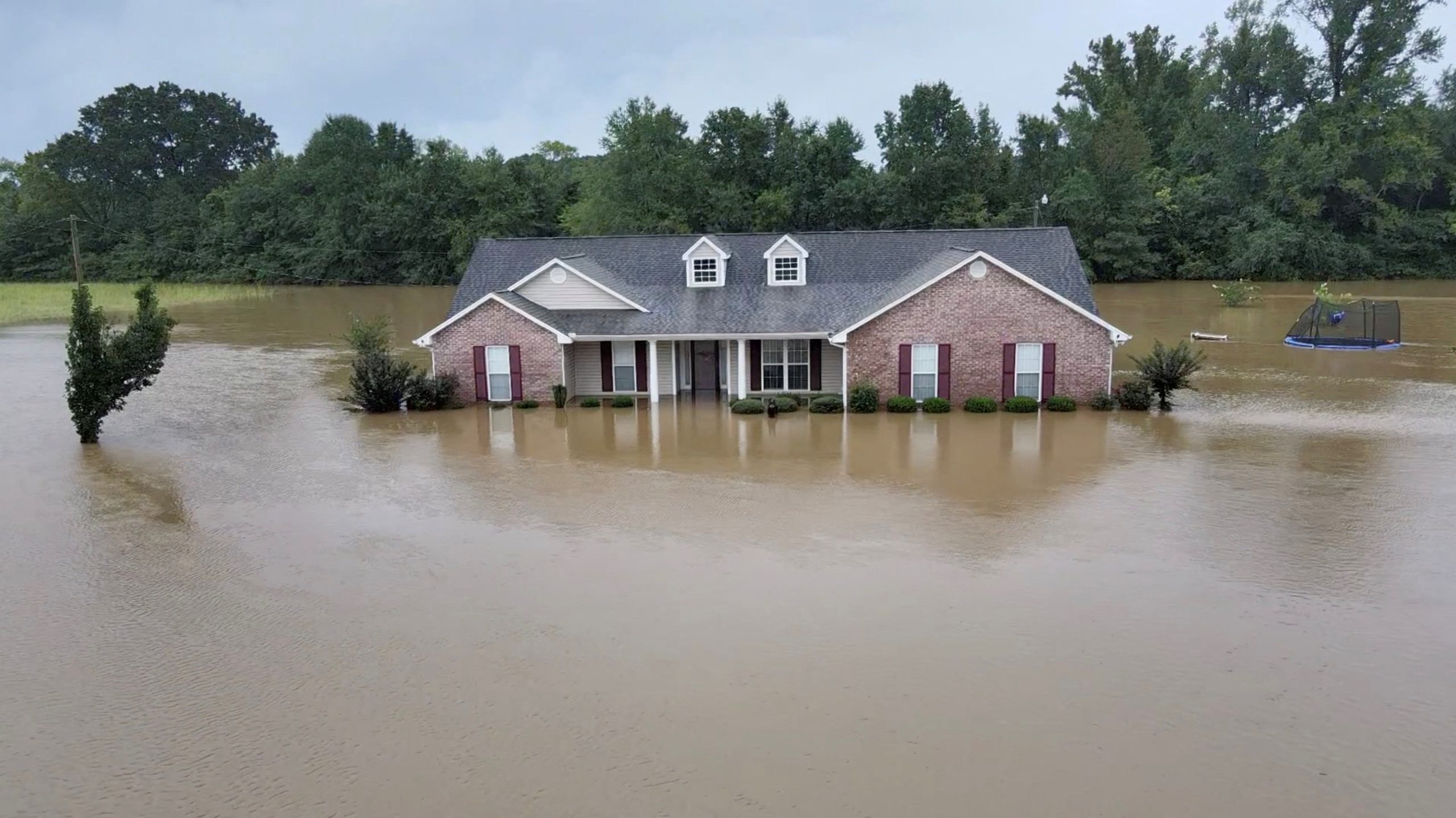
[elfsight_social_share_buttons id=”1″]
Marsha Lewis, a bartender in Mississippi’s capital city of Jackson, said she went to fill up her bathtub on Monday when she heard a local water treatment had shut down but was “horrified” to instead see raw sewage flowing from the faucet.
By Tuesday morning, after the governor declared a state of emergency for Jackson and neighboring communities, she had no water at all.
“I’m just mad. Mad at the city and who all is responsible,” Lewis, 42, told Reuters. She said she has been washing her hair with bottled water for the past month, due to a citywide boiled water alert.
“We pay our bills and get no water,” she complained.
Jackson will go without reliable drinking water indefinitely, officials said on Monday, after pumps at the main water treatment plant failed, leading to the emergency distribution of bottled water and tanker trucks for 180,000 people.
The city linked the failure to complications from the flooding of the Pearl River, but Governor Tate Reeves, who declared a state of emergency, said the cause was unknown and that the city-run water treatment plant had been poorly operated and understaffed for years.
In any case, the capital city of 150,000 people and 30,000 in surrounding communities could go without running water indefinitely, as officials warned anyone with access to tap water should boil it for three minutes.
Jackson is more than 80% Black or African American, according to U.S. Census data.
“Do not drink the water,” Reeves told a hastily called news conference. “In too many cases, it is raw water from the reservoir being pushed through the pipes.”
The city said recent flooding of the Pearl River created complications at the O.B. Curtis water treatment plant, which sits next to the Ross Barnett Reservoir, just north and upriver from the city.
However, Jackson has been dealing with issues related to storm-water runoff flooding nearly 100-year-old water and sewage pipes and shutting down the city’s water treatment facilities during heavy rains for more than a decade. The latest chapter of the ongoing saga could prove to be the worst yet.
The town has been under a boiled water alert for the last month.
Reeves said the motors powering the plant’s pumps went out recently, leaving it to operate on backup pumps, which failed on Monday. The state would establish an incident command center at the plant early Tuesday, hoping to re-establish operations.
“Until it is fixed, it means we do not have reliable running water at scale. It means the city cannot produce enough water to fight fires, to reliably flush toilets, and to meet other critical needs,” Reeves said.
The crisis has repeatedly exposed the gulf between the Republican governors and the Democratic mayors of Jackson for years.
Reeves said he did not invite current Jackson Mayor Chokwe Antar Lumumba to Monday’s news conference and said, “I can’t comment on what effect the flooding may or may not have had.”
The city operates the area’s two water treatment plants, the O.B. Curtis plant, which treats 50 million gallons (227,300 cubic meters) per day, and the Fewell plant, whose normal production of 20 million was increased to 30 million gallons, officials said.
Because water pressure dropped system-wide, officials could not guarantee running water, and they did not know how many homes were affected.
In the meantime, Jackson Public Schools said they would shift to online learning starting Tuesday.
The city and state were both distributing bottled drinking water and non-potable water for toilets, which the governor called a “massively complicated logistical task.”
(Additions and edits for FISM News by Jacob Fuller)
